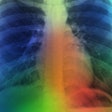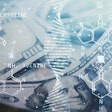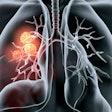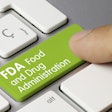Dear LabPulse Member,
It was interesting for me to see some thoughtful discussion about serology testing among my contacts on Facebook this past weekend.
One musician friend who lives in San Francisco posted asking for advice on antibody tests for COVID-19, wanting to know which brands were the best. Respondents drew her attention to studies involving free voluntary testing -- diagnostic and serology -- of everybody, some 2,000 people, in the California town of Bolinas and 5,700 residents in the busy Mission District of San Francisco. The Mission District testing started April 25 and was set to run for four days. Another respondent advised her not to get an antibody test because of the problems with accuracy, and she now plans to hold off.
The quality of serology testing is a hot topic nowadays. The World Health Organization just published a scientific brief noting that governments are looking to use antibody tests to prove immunity, but that there is no evidence that people who have recovered from COVID-19 and have antibodies are protected from getting infected a second time. There are issues with testing accuracy as well.
During an unusually short (under a half-hour) press briefing by the White House coronavirus task force on April 24, U.S. Food and Drug Administration Commissioner Dr. Stephen Hahn said President Donald Trump had requested that the agency eliminate as many barriers as possible when it comes to authorizing tests, while paying attention to safety. Normally it takes years to develop diagnostics, but the process is now very rapid.
"We've been laser-focused on working with both industry and academia to actually make this happen," Hahn said.
To date, 70 tests have received emergency use authorization, including six serology tests. Many others are on the market -- companies just need to provide notification of commercialization to the agency. Pressed about the risk of junk tests that have not been reviewed, Hahn noted that manufacturers must tell the agency how they have validated their tests and must be transparent with consumers about the lack of authorization.
More than 5.1 million coronavirus tests have been conducted so far in the U.S. Kalorama Research Analyst Justin Saeks provided a new report for LabPulse.com on where we are with testing, as well as strategies for dealing with supply shortages at labs.
Requirements for social distancing during the COVID-19 pandemic make a good case for remote pathology, or telepathology. Contributing writer Joseph Constance talked to pathologists about how they are using digital technologies and how they addressed challenges with implementation.
Meanwhile, research is ongoing for the application of artificial intelligence (AI) in pathology. Researchers at the Dartmouth-Hitchcock Medical Center reported on an AI model they developed as an aid for identifying types of polyps on digitized histopathologic slides. The findings suggest that AI could be a valuable tool for colon cancer screening, the researchers concluded.



















